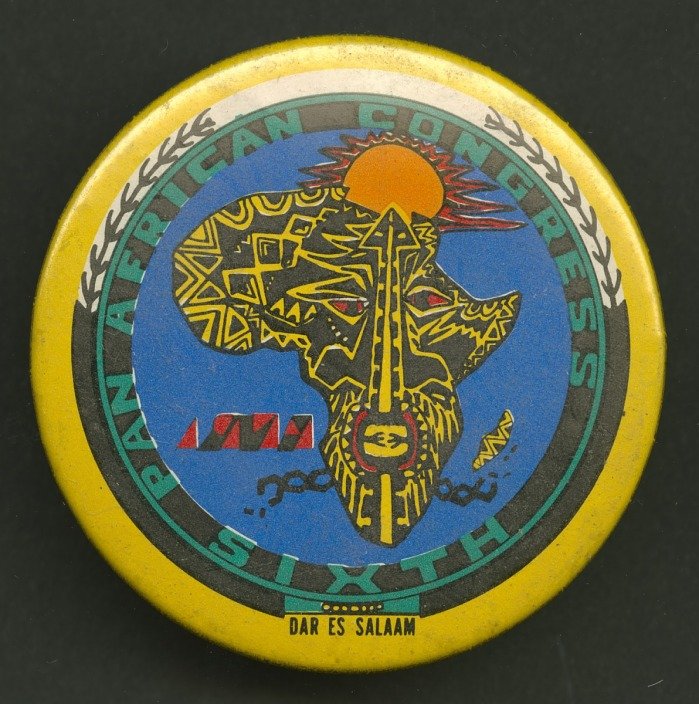SNCC: International Connections
Reading by SNCC Digital Gateway
Pinback button promoting the sixth Pan African Congress. Smithsonian National Museum of African American History and Culture.
Founded during the Cold War, SNCC was indelibly shaped by the era’s international politics. Anti-communism became the political norm within the United States, as tensions with the Soviet Union escalated after World War II. Politicians, especially southern politicians, used this domestic Red Scare to stifle political dissent. Civil rights activists faced a barrage of attacks from government agencies, led by HUAC (House Un-American Activities Committee), ostensibly for being communists. These red-baiting tactics forced many civil rights groups on the defensive. SNCC, however, adopted a policy of freedom of association. The organization was willing to work with anyone who was willing to help their cause, no matter if they were labeled communists.
Growing up in the 1950s and 1960s, SNCC members were also influenced by the rising tide of liberation movements that followed World War II. As their commitment to the movement increased, they linked their own struggle for civil and human rights at home with anti-colonial struggles in Africa, Asia, and Latin America. In 1966, SNCC publicly decried U.S. involvement in Vietnam after the murder of Sammy Younge. The organization saw the violence in Vietnam as a manifestation of the same white supremacist violence that Black people faced in America. A year later, along with the founding of its international bureau, SNCC declared itself a human rights organization dedicated to the liberation of oppressed peoples around the globe. The call for Black power had taken hold in an international context.

